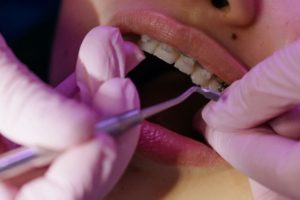Dental cavities are a fairly common problem. In fact, 9 out of 10 Canadians suffer from cavities, which is troublesome, and 57% of children between 6 and 12 years old have had at least one cavity. When a cavity forms, it starts by eating away at the tooth enamel and causes decay. If left untreated, this causes cavities, which can reach the dentin and become much more painful.
1- What causes cavities?
There are many causes of cavities. However, the main causes remain the excessive consumption of sugar, particularly between meals. Additionally, poor oral hygiene can be the cause of cavities. Indeed, the food residues between teeth, along with the bacteria already present in the mouth are the breeding ground for cavities. Hence the importance of having impeccable oral hygiene by brushing and flossing your teeth after each meal. Other factors could cause the appearance of cavities, such as lack of fluoride, and eating disorders, like anorexia or bulimia.
2- What are the symptoms of cavities?
The symptoms of cavities are varied and obviously depend on the stage of the infection. For example, at the very beginning of its formation, cavities can be painless because they are only present on the surface of tooth enamel. After this stage, the pain may intensify. Particularly an increased sensitivity to hot and cold, pain during chewing, the appearance of black or brown spots on the surface of the tooth and the presence of pus in the tooth.
3- What treatments are available for cavities?
Cavities can only be treated by your dentist. If the latter is handled quickly enough, the infected part will be removed and the hole of the cavity will then be filled with an amalgam (metal filling) or a composite (natural colored resin). However, if the infection is at an advanced stage, root canal treatment can be necessary, as well as possibly a crown procedure.
4- How can cavities be prevented?
Of course the best way you can prevent the risk of cavities is by having simple and rigorous habits. Brush your teeth after each meal, do not eat excessive amounts of sweet or carb-rich foods, use dental floss and above all, do not forget to go to your dentist several times a year.
In summary…
Diligent oral hygiene habits are necessary to prevent the risk of cavities. However, if you have any suspicion or unusual dental pain, make an appointment with your dentist.





